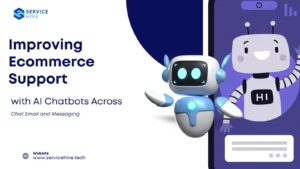
Improving Ecommerce Support with AI Chatbots Across Chat Email and Messaging
Improving Ecommerce Support with AI Chatbots Across Chat Email and Messaging Introduction If you run an ecommerce business today you
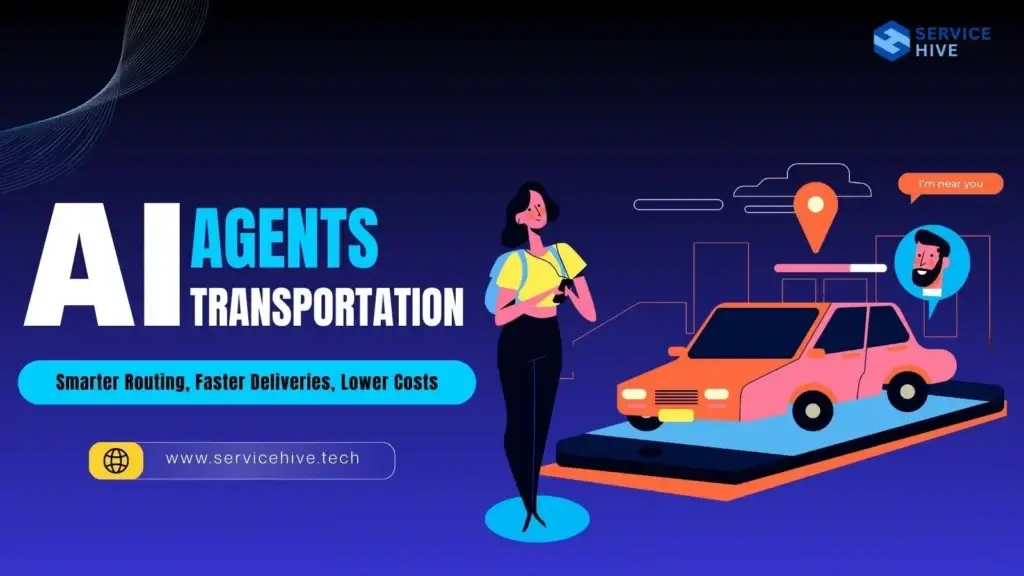
The global transportation and logistics industry faces constant challenges: unpredictable demand, rising fuel costs, supply chain disruptions, and growing customer expectations for faster deliveries. To overcome these hurdles, organizations are increasingly adopting AI Agent solutions—intelligent systems that automate decision-making, analyse data in real time, and deliver actionable insights.
From optimizing delivery routes to predicting demand and reducing operational costs, AI Agents are redefining how transportation companies operate. Businesses looking to leverage these innovations often turn to Service Hive for tailored AI Agent implementations that align with industry needs.
The Role of AI Agents in Modern Transportation
AI Agents analyse live traffic data, weather conditions, and historical delivery patterns to suggest the most efficient routes. Unlike traditional GPS, these agents learn and adapt continuously, ensuring vehicles avoid delays and reduce fuel consumption.
According to McKinsey & Company, AI-driven route optimization can significantly cut operating costs and boost efficiency.
By using machine learning and predictive analytics, AI Agents can forecast demand surges, recommend fleet adjustments, and even anticipate bottlenecks in ports, rail, or highways—ensuring faster and more reliable deliveries.
AI-driven route optimization reduces unnecessary mileage and idle time. Studies show companies implementing AI Agent solutions can cut fuel consumption by 10–20% and reduce maintenance costs through smarter scheduling Deloitte Insights on Smart Logistics .
How AI Agents Support Different Transport Modes
Business Benefits of AI Agent Implementation
The World Economic Forum highlights that AI in transportation could reduce global emissions by up to 15% through smarter logistics WEF Report .
How AI Agents Work in Transportation Systems
For organizations seeking practical deployment, Service Hive’s AI Agent solutions integrate seamlessly with fleet management systems, ensuring measurable ROI.
Key Performance Indicators (KPIs) AI Agents Improve
Real-World Impact of AI Agents in Transportation
FAQs About AI Agents in Transportation
Q1. What is an AI Agent in transportation?
An AI Agent is an intelligent software system that uses real-time data and machine learning to optimize routing, scheduling, and resource allocation in transportation.
Q2. How do AI Agents reduce transportation costs?
They minimize empty miles, optimize fuel use, and improve asset utilization, directly lowering operational costs.
Q3. Are AI Agents secure for handling transport data?
Yes, modern AI systems use encrypted communication and comply with industry security standards to protect sensitive data.
Q4. Can AI Agents work with existing transportation systems?
Absolutely. They integrate with GPS, ERP, CRM, and fleet management platforms through APIs.
Q5. Do AI Agents help with sustainability goals?
Yes, by cutting fuel waste and optimizing routes, AI Agents significantly reduce carbon emissions.
Q6. How can businesses start using AI Agents?
Companies can begin with pilot projects focused on route optimization and expand into pricing, scheduling, and demand forecasting. Service Hive provides structured pilot programs that deliver measurable results within weeks.
Conclusion
AI Agents are not just tools—they’re strategic partners in efficiency and growth. By improving routing, speeding up deliveries, and cutting costs, they help transportation providers stay competitive in a rapidly evolving market.
Organizations that adopt AI Agent-driven systems today will be best positioned for a future where real-time intelligence, automation, and sustainability define the industry.
For businesses ready to implement cutting-edge solutions, partnering with Service Hive ensures your AI Agent strategy is tailored, scalable, and future-ready.

Improving Ecommerce Support with AI Chatbots Across Chat Email and Messaging Introduction If you run an ecommerce business today you
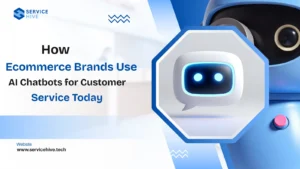
How Ecommerce Brands Use AI Chatbots for Customer Service Today If you run or manage an ecommerce brand today you
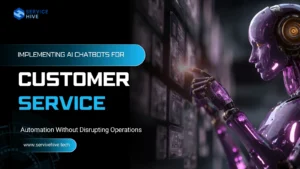
Implementing AI Chatbots for Customer Service Automation Without Disrupting Operations If you are a business owner or founder, chances are
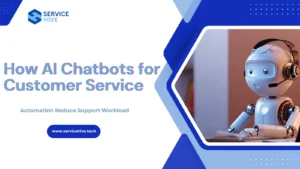
How AI Chatbots for Customer Service Automation Reduce Support Workload Introduction If you are a founder or operations lead, customer
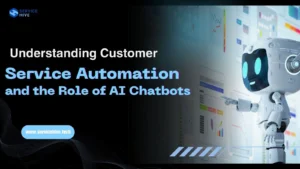
Understanding Customer Service Automation and the Role of AI Chatbots introduction If you are a business owner or founder, you
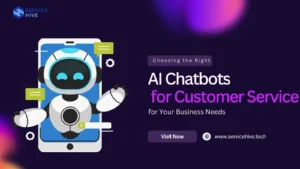
Choosing the Right AI Chatbots for Customer Service for Your Business Needs Introduction If you run a growing business today